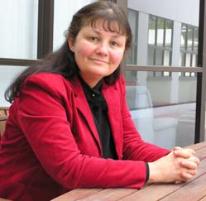Research unlocks factors for Indigenous end-of-life care
Published on 27 July, 2004
A new National Health and Medical Research Council report compiled with help from a CQU researcher unlocks key factors for Indigenous end-of-life health care.
Dedicated health workers in Australia’s remote communities are faced with the challenges of staff shortages, vast distances, and restricted resources, in their work providing end-of-life care for Indigenous people.
Consequently, despite their best efforts, many Indigenous Australians are spending their last days lonely, fearing euthanasia and confused, in the wards of city hospitals, according to the report due out next week.
 The report, ‘Indigenous Palliative Care Service Delivery – A Living Model’, is based on a two-year study of the end of life care received by people from remote communities in the Northern Territory.
The report, ‘Indigenous Palliative Care Service Delivery – A Living Model’, is based on a two-year study of the end of life care received by people from remote communities in the Northern Territory.
“We have a situation where people who don’t speak English, who’ve spent all their lives in their homelands, are being sent in their last year of life to the alien world of a major metropolitan hospital,” said CQU's Dr Pam McGrath, principal investigator (pictured).
“It is often impossible for family members to travel the vast distances required to visit their dying relatives and patients are separated from their spiritual base, their country.”.
The report, which includes a new model for palliative care provision, recommends that hospices and respite facilities be built in communities and that specially trained palliative care nurses be employed to visit communities regularly.
"Our research has shown that there are some excellent health services currently being provided in the community," Dr McGrath said.
"However in order to support peoples' wishes to die at home we need to build up the infrastructure for palliative care.".
The report also examines the cultural issues that impact on communication and recommends the employment of more Aboriginal health workers.
“There were some examples given of patients consenting to treatments without having a proper understanding of what they were consenting to,” Dr McGrath said.
“Aboriginal health workers help the patient’s understanding and it is essential that family meetings are held with Aboriginal health workers present before any major decisions about treatment can be made,” Dr McGrath said.
The researchers also emphasise the need to respect Indigenous cultural practices, including rules of confidentiality.
“Only people in the right relationship with the patient should be consulted to make important end of life decisions,” Dr McGrath said.
“Establishing relationships of trust with community members and contacting elders to ask for advice on how to proceed in sensitive situations is essential.”.
The report provides details of many of the cultural practices and rules around death and dying and recommends that education about these practices be mandatory for health professionals working with Indigenous communities.
The research team for the project was drawn from Central Queensland University, Charles Darwin University and the Palliative Care Unit of the Northern Territory Department of Health.
The model for palliative care service provision was developed in consultation with a national panel of Indigenous and non-Indigenous experts in Indigenous health and palliative care.
All findings and recommendations in the report are based on interviews with patients, carers and service providers conducted by an Indigenous health worker in Alice Springs, East Arnhem Land, Katherine and Darwin.
The researchers stress that the model they have developed is a ‘living model’, not to be imposed on service providers but to be adapted to each service according to its needs and available resources.
For further information contact the Principal Investigator, Dr Pam McGrath on (07) 3374 1792, or email pam_mcgrath@bigpond.com Media release prepared by Mary Anne Patton, email patton@onlinestrategy.com.au

